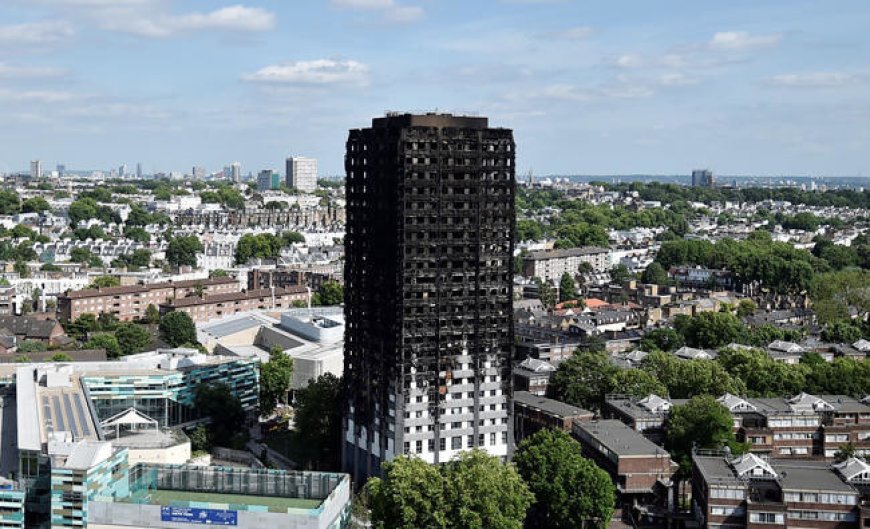Grenfell fire inquiry reveals Muslim survivors were denied halal food during temporary relocation

An inquiry has revealed that Kensington and Chelsea Council “badly failed” Muslim survivors of the Grenfell Tower fire by denying them access to halal food while they were temporarily resettled at hotels.
The Independent reported on Wednesday that the inquiry’s final report found that the 2017 fire that had killed 72 people was a result of “decades of failure” by central government and the construction industry to act on the dangers of flammable cladding.
According to the inquiry, Kensington and Chelsea Council should have done more to cater to people from diverse backgrounds because most of the tower residents had been observing Ramadan, yet halal food was not provided at all hotels.
Also, it was impossible to observe the requirement to eat at set times during the holy month.
The inquiry’s findings prompted criticism from the Muslim Council of Britain’s Secretary-General Zara Mohammed, who told the Independent: “The treatment of minority and faith communities by the council highlights wider structural and systemic issues that must be tackled.
“Grenfell remains a stark reminder and trauma for so many, not just the fire but for the way the most vulnerable in our society are treated.
“Much must be learned now, and for those who have been waiting for justice, meaningful change is essential,” said Mohammed.
Dr. Shabna Begum, CEO of the Runnymede Trust, linked race, Grenfell and wider housing inequalities — and warned that it was “a matter of time until a tragedy of the same scale will happen again.”
“The Grenfell fire was a preventable tragedy, marred at every point by structural and direct racism — from those who were killed, to the treatment of survivors, the bereaved, and the wider community, as the latest report from the inquiry confirms. Seven years since, there is still no justice for the victims and thousands of unsafe buildings still stand across the country,” she said.
“People of color are feeling the harshest impacts of the housing crisis, disproportionately live in unsafe and unsuitable homes, and are often funnelled into the poorest quality and least desirable social housing. As a bare minimum, everyone should have access to safe, suitable, affordable housing,” she added.
The Grenfell inquiry report highlighted the lack of support for people from migrant backgrounds whose first language was not English.
“Those who obtained information about the support available were the first to receive assistance, while those who did not were left behind,” it said.
Interpreters were often not provided, and in some cases, were provided but in the wrong language, the report found.
A Black Lives Matter spokesperson said: “The report confirms what we already know — that we live in a society where a hierarchy of human worth is premised upon the color of your skin, and where ease in accessing basic social goods such as decent housing is determined by your class and race.”
There were also barriers to mental health support for survivors, according to the report.
The head of policy at Action for Race Equality, Meka Beresford, hoped the lessons and recommendations from this report were taken seriously, “as a matter of utmost urgency.”
“Those impacted by the Grenfell tragedy have been systematically failed at every stage,” she told the newspaper.
“The final report published today is clear — if you are Black or Brown, a Muslim, or spoke English as an additional language, you were faced with barriers to even the most basic forms of support following the fire.
“Decades of failure predated the tragedy, and we must not wait any longer to put an end to the pervasive institutional racism and Islamophobia in Britain today,” Beresford said.













































